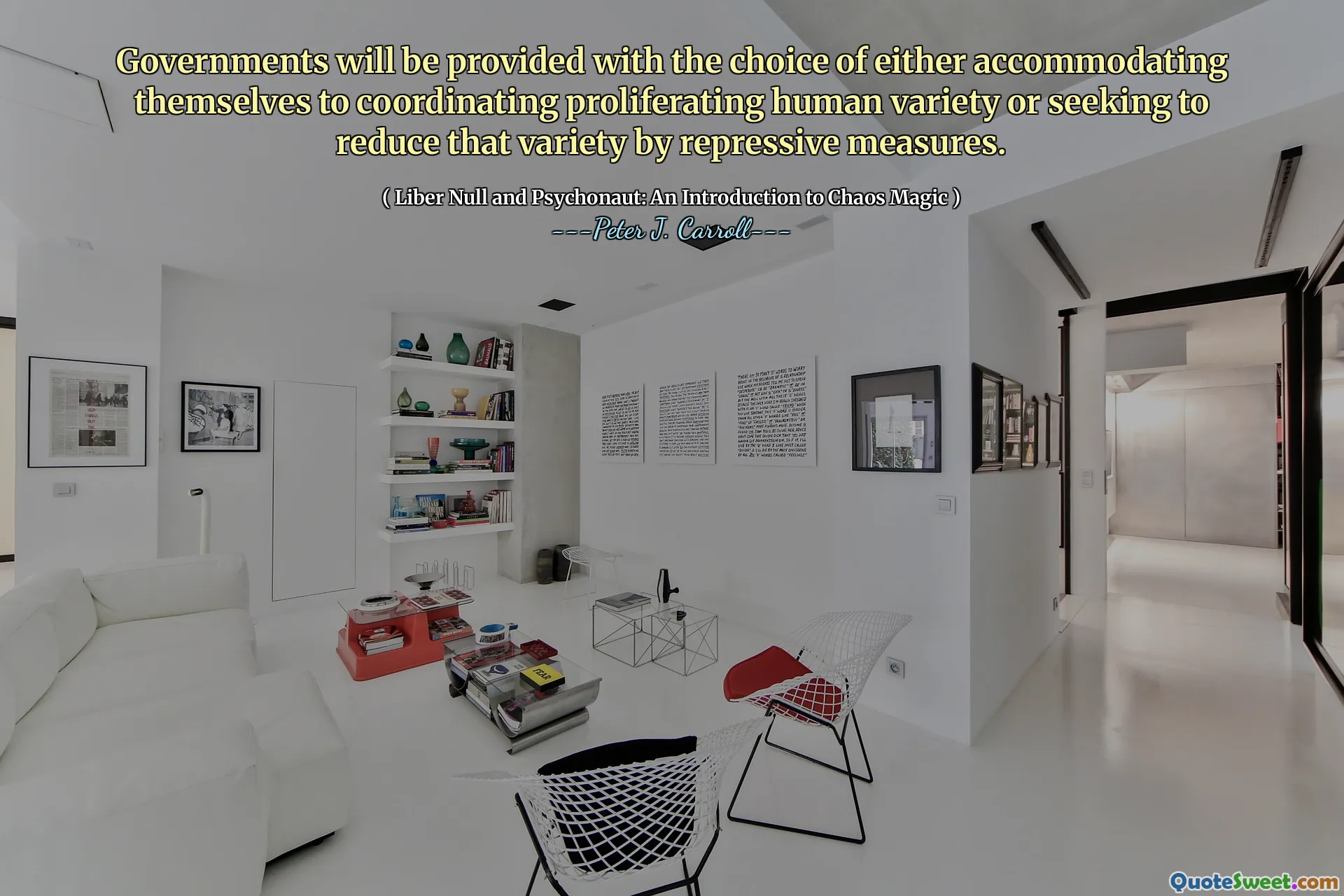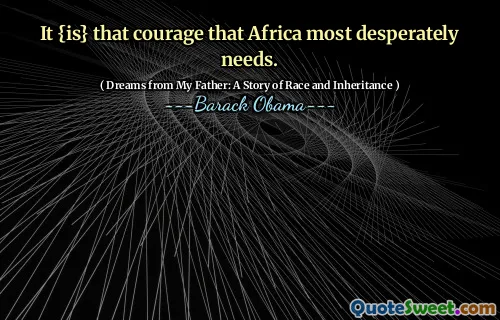
Governments will be provided with the choice of either accommodating themselves to coordinating proliferating human variety or seeking to reduce that variety by repressive measures.
This quote emphasizes a fundamental dilemma faced by governments in managing societal diversity. It suggests that authorities can either embrace the growing heterogeneity within their populations and attempt to coordinate and integrate this diversity, or they can choose repressive strategies to suppress differences and enforce uniformity. The subtlety of this statement points toward the complexities and potential consequences of both approaches. Accommodating diversity may foster social innovation, creativity, and resilience, but it also requires adaptive governance, open-minded policies, and a genuine commitment to inclusion. Conversely, suppression of diversity via repressive measures can lead to social tensions, unrest, and possibly violent conflicts as people’s natural inclination to express their unique identities is stifled. Historically, repressive measures often generate resistance and long-term instability, whereas embracing diversity can pave the way for societal growth and evolution.
Furthermore, this quote invites reflection on the broader implications of control and freedom. It underscores the challenge governments face in balancing security, order, and individual liberties. The act of accommodating diversity may be seen as a positive move toward pluralism, but it also entails difficulties in managing conflicting interests and values. The choice presented is not merely a binary one but a complex decision-making process influenced by political, social, and economic factors. It raises questions about what truly sustains a stable society: uniformity through repression or vibrant coexistence through acceptance. This tension remains relevant in contemporary debates on multiculturalism, authoritarian governance, and human rights. Ultimately, the quote warns of the consequences of choosing repression over accommodation, hinting that evolving governmental strategies toward pluralism might be more beneficial for societal harmony and progress, provided they are thoughtfully implemented.





